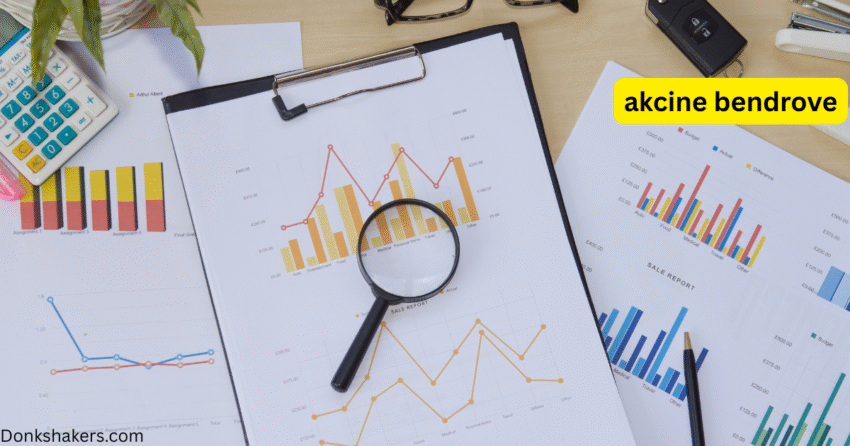Starting a business in Lithuania? Understanding the Akcine Bendrove structure is essential for entrepreneurs and investors. This comprehensive guide covers everything you need to know about Lithuania’s joint-stock companies.
What is an Akcine Bendrove?
An akcine bendrove is a Lithuanian joint-stock company. The term translates directly to “stock company” in English. This business structure allows multiple shareholders to own parts of the company through shares.
Lithuania recognizes two main types of joint-stock companies. The public joint-stock company (AB) offers shares for public trading. The private joint-stock company (UAB) keeps shares private among limited shareholders.
Types of Akcinė Bendrovė in Lithuania
Public Joint-Stock Company (AB)
The public akcine bendrove allows share trading on public markets. Public companies have the ability to offer their shares to any investor. They face stricter regulations and reporting requirements.
Key features include:
- Shares can be traded publicly
- Higher minimum capital requirements
- Extensive disclosure obligations
- Complex governance structures
Private Joint-Stock Company (UAB)
The most common form of business presence in Lithuania is a limited liability company – Uždaroji akcinė bendrovė (UAB). This private version restricts share ownership to specific individuals or entities.
Benefits of UAB structure:
- Limited liability protection
- Flexible ownership structure
- Lower regulatory burden
- Tax advantages
Key Requirements for Akcine Bendrove Formation
Minimum Capital Requirements
Establishing a limited liability company requires a minimum capital investment of EUR 2,500. At least 25% of this capital must be paid upfront during registration.
For public companies, capital requirements are significantly higher. The exact amount depends on the business activities and regulatory requirements.
Shareholders and Directors
Every akcinė bendrovė needs at least one shareholder. The shareholder can also serve as the company director. Foreign investors can fully own Lithuanian companies without restrictions.
Director responsibilities include:
- Managing daily operations
- Representing the company legally
- Ensuring compliance with regulations
- Financial reporting and record-keeping
Formation Process and Timeline
Step-by-Step Registration
The timeline for company formation in Lithuania is approximately 2 weeks for a new company. The process involves several key steps.
First, choose a unique company name. The name must include “akcinė bendrovė” or its abbreviation. Next, prepare the required documents including articles of association and shareholder agreements.
Submit documents to the Register of Legal Entities. Pay the registration fees and minimum capital requirements. Finally, register for taxes and social security.
Required Documents
Essential paperwork includes:
- Articles of association
- Shareholder identification documents
- Proof of capital deposit
- Company address confirmation
- Director appointment documents
Legal Framework and Governance
Corporate Structure
The Akcine bendrove follows specific governance rules. Shareholders make major decisions through general meetings. Directors handle day-to-day management and operations.
Large companies may require supervisory boards. These boards oversee management and protect shareholder interests. The number of board members varies based on how large the company is and who owns the shares.
Compliance Obligations
Lithuanian joint-stock companies must follow strict compliance rules. Annual financial statements are mandatory. Companies must hold yearly shareholder meetings.
Regular filings with authorities include:
- Annual reports
- Tax declarations
- Employment records
- Banking compliance documents
Tax Benefits and Obligations
Corporate Tax Structure
A Lithuanian Private Limited Company provides foreigners with a one shareholder who can be the sole director with a low corporate tax rate. Lithuania offers corporate tax rates that remain attractive compared to other EU member states.
Small companies may qualify for reduced tax rates. Tax incentives exist for specific industries and activities. Research and development activities receive special treatment.
VAT and Other Taxes
Companies exceeding certain revenue thresholds must register for VAT. Employment taxes apply to all staff members. Property taxes depend on real estate ownership.
Advantages of Akcinė Bendrovė
Limited Liability Protection
Shareholders enjoy limited liability protection. Personal assets remain separate from business debts. This protection applies unless directors act fraudulently or negligently.
EU Market Access
Lithuanian companies access the entire European Union market freely. This enables unrestricted business activities across all EU member states. Banking and financial services integration provides additional benefits.
Flexible Ownership Structure
The akcine bendrove allows flexible ownership arrangements. Share transfers are relatively straightforward. Family succession planning becomes easier with proper structuring.
Common Challenges and Solutions
Language and Administrative Barriers
Official documents require Lithuanian language versions. Translation services help navigate bureaucratic requirements. Local legal assistance ensures proper compliance.
Banking and Financial Services
Opening corporate bank accounts can be challenging for foreign investors. Establishing local presence often helps with banking relationships. Professional services providers offer valuable assistance.
Ongoing Compliance
Maintaining compliance requires ongoing attention. Regular reporting deadlines must be met. Professional accounting services ensure proper record-keeping.
Industry-Specific Considerations
Financial Services
Banks and financial institutions face additional licensing requirements. Lithuania’s central banking authority regulates financial sector operations. Compliance costs are significantly higher for regulated entities.
Manufacturing and Export
Manufacturing companies benefit from EU trade agreements. Export activities receive various government support programs. Location advantages include skilled workforce and competitive costs.
Technology and Innovation
Tech companies enjoy favorable tax treatment for research activities. Government programs support startup development. Access to EU funding programs provides growth opportunities.
Future Outlook for Akcine Bendrove
Regulatory Developments
Lithuania continues modernizing its corporate law framework. Digital services make registration and compliance easier. Cross-border business activities face ongoing simplification.
Economic Environment
The Lithuanian economy offers stable growth prospects. EU membership provides political and economic stability. Strategic location benefits trade with both EU and CIS countries.
Conclusion
The akcinė bendrovė structure offers excellent opportunities for business development in Lithuania. Whether choosing a public or private format, entrepreneurs benefit from EU access, tax advantages, and flexible structures.
Success requires proper planning and professional guidance. Understanding legal requirements prevents costly mistakes. With the right approach, Lithuanian joint-stock companies provide excellent platforms for European business expansion.
Consider consulting local professionals for specific advice. Every business situation has unique requirements and opportunities. The Akcine bendrove structure adapts well to various business models and growth strategies.
